The stage director, Richard Brunel, happily decided not to turn this fable into a shallow manifesto; far from weakening the dramatic scope of this masterpiece, he allows its multiple symbols to take on their full meaning. Brunel does not shy away from the mystery and the ambiguity of Klabund’s play which emerges stronger than ever.
Resmusica, Joseph Thirouin
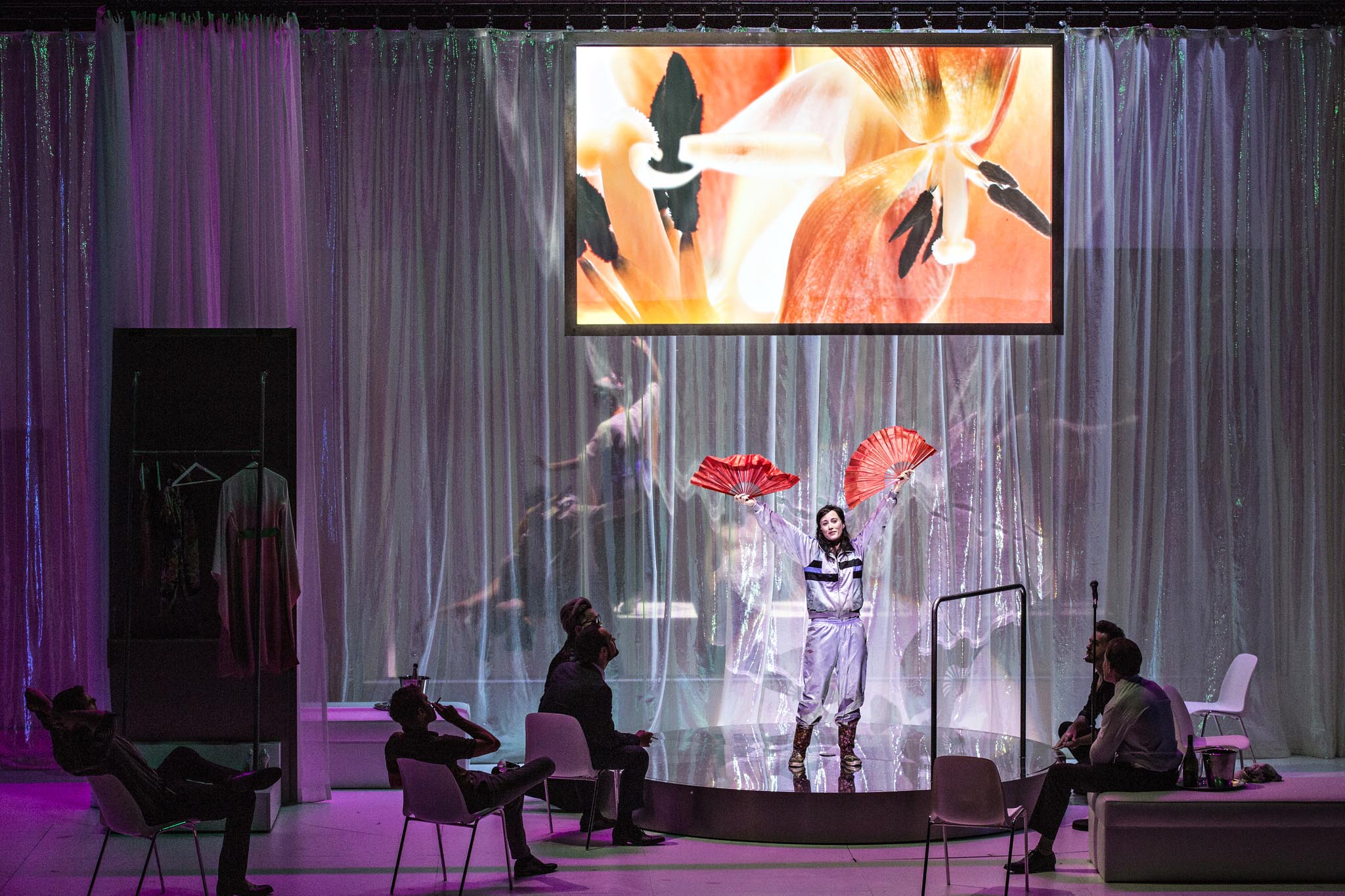
Richard Brunel’s direction is supreme.
La croix, Bruno Serrou
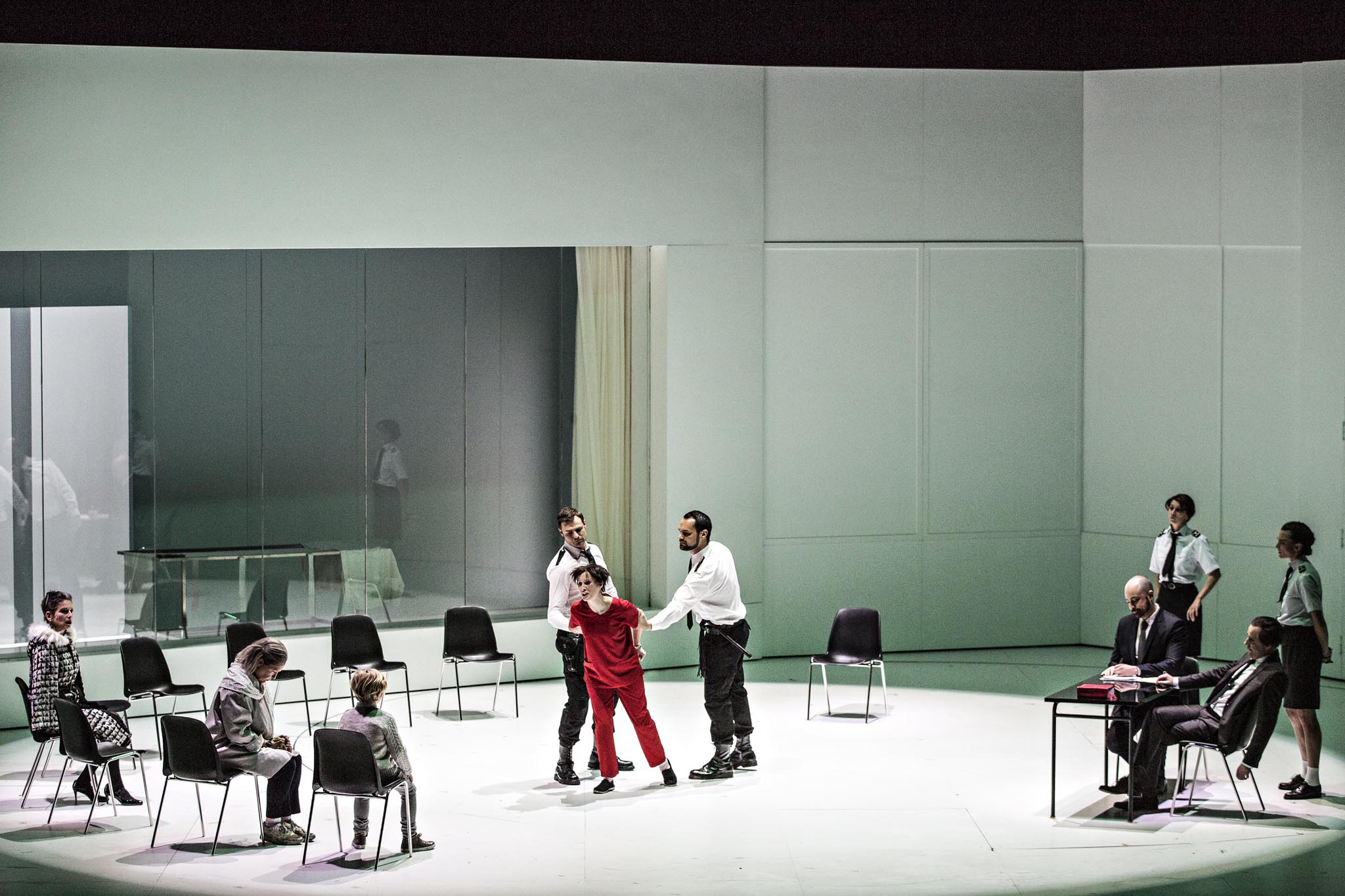
Richard Brunel creates a quasi-cinematic staging; his dramatic art is razor-sharp, far from any sensuality and psychologising. The strength of his work resides in his talent for balancing a commitment to a noble cause with aesthetic rigour. The trial scenes, among others, powerfully illustrate this.
Les trois coups, Michel Dieuaide, 26 janvier 2018
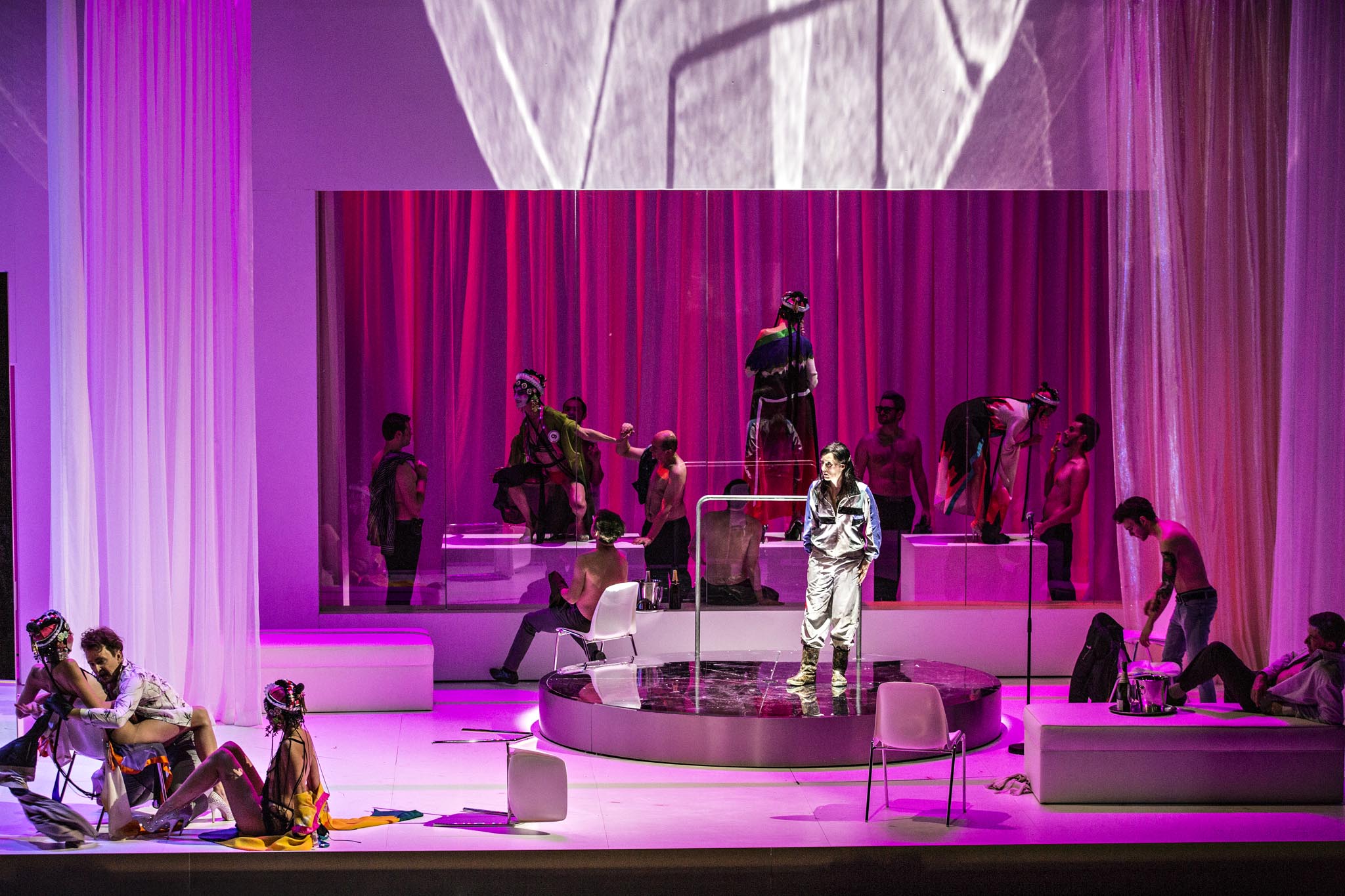
Richard Brunel’s production luckily leaves chinoiserie behind to highlight instead the raw and cruel nature of this theatre where good and evil fight without nuance.
In a cold, white environment made up of sliding partitions, the scene changes occur one after the other, without pause, making the action intelligible by unobtrusively updating it. The kangaroo court scene is delightfully biting, and the last image, which warns us against the illusions of happy endings, makes for good theatre.
Le Figaro, Christian Merlin, 28 janvier 2018
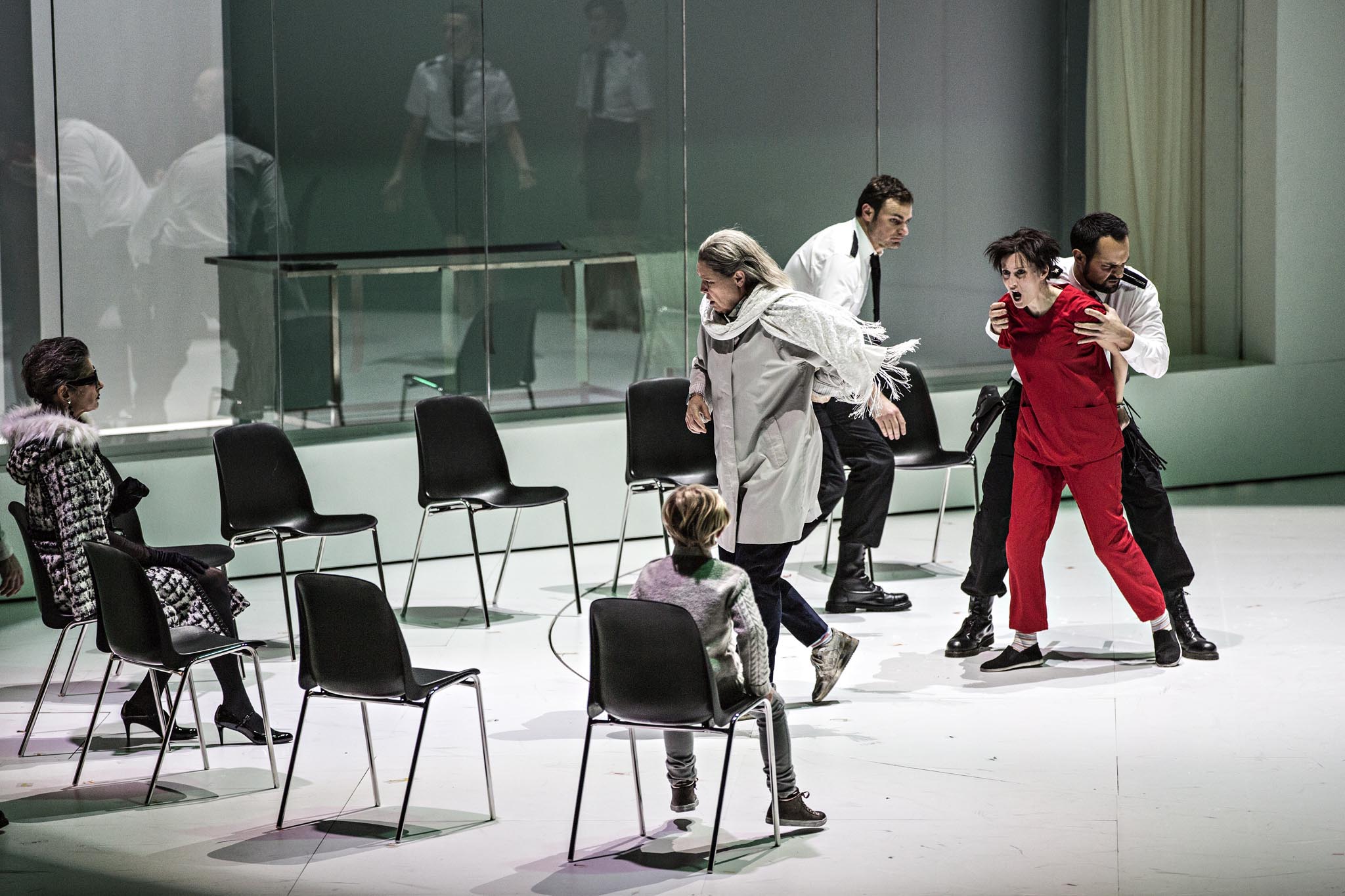
Will justice be served? It will, but then, it won’t, answers this production, subtly directed by Richard Brunel, in this last cruel about-turn. While it could have been suffused with unbearable darkness, the mise-en-scène plays the purity card, without ever giving into pathos. All the ingredients are there to turn this Chalk Circle into an unforgettable production. Which, in turn, might inspire other opera houses to make audiences rediscover the remarkable work of Alexander Von Zemlinsky.
Télérama, Sophie Bourdais
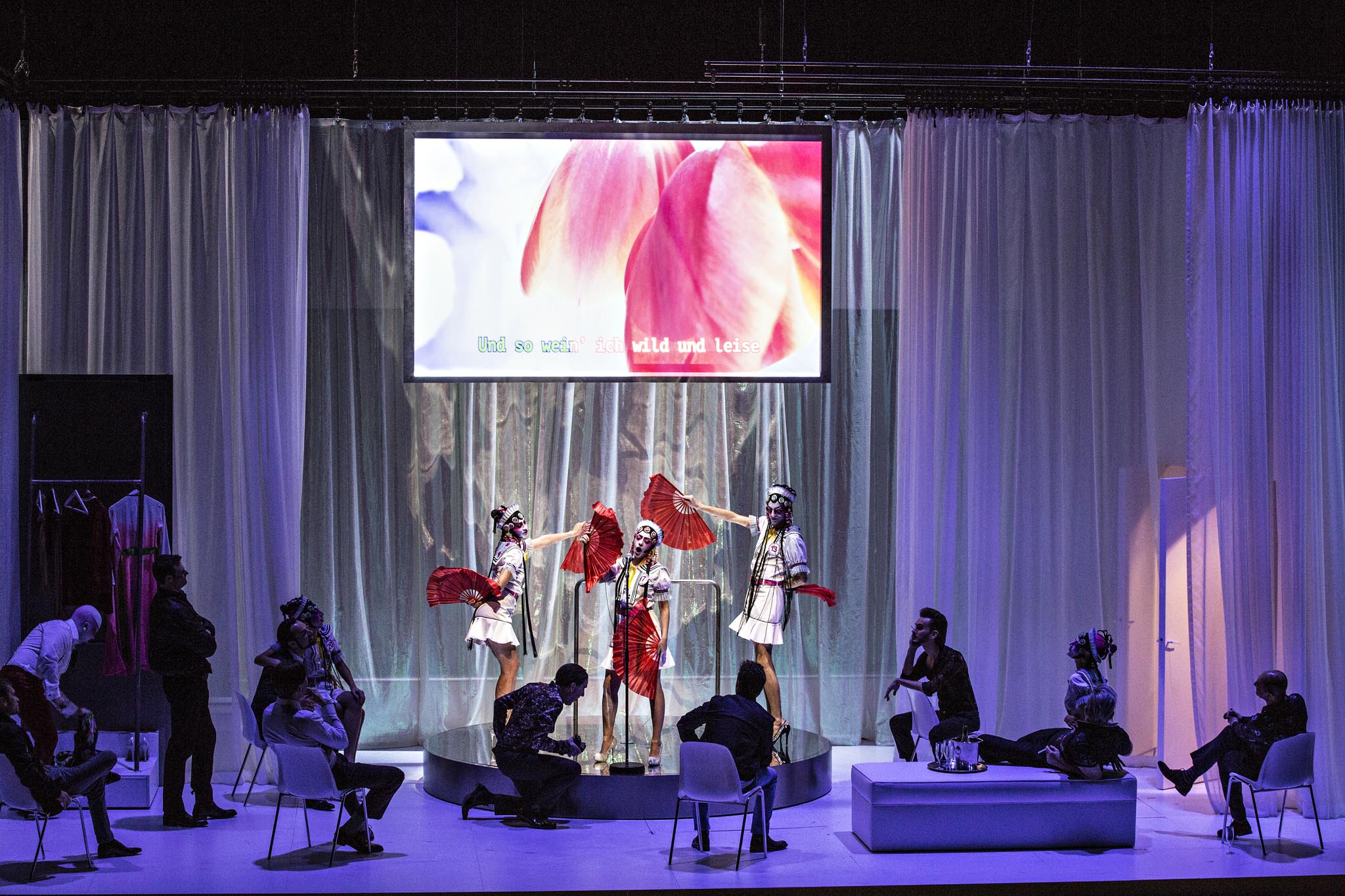
Richard Brunel found the right tone and gesture for each of the character’s cues. Thanks to this individual and collective work on the part of his team, the spectator can smoothly get to the heart of the story. A truly unforgettable evening.
Web Théâtre, Jaime Estapà i Argemi
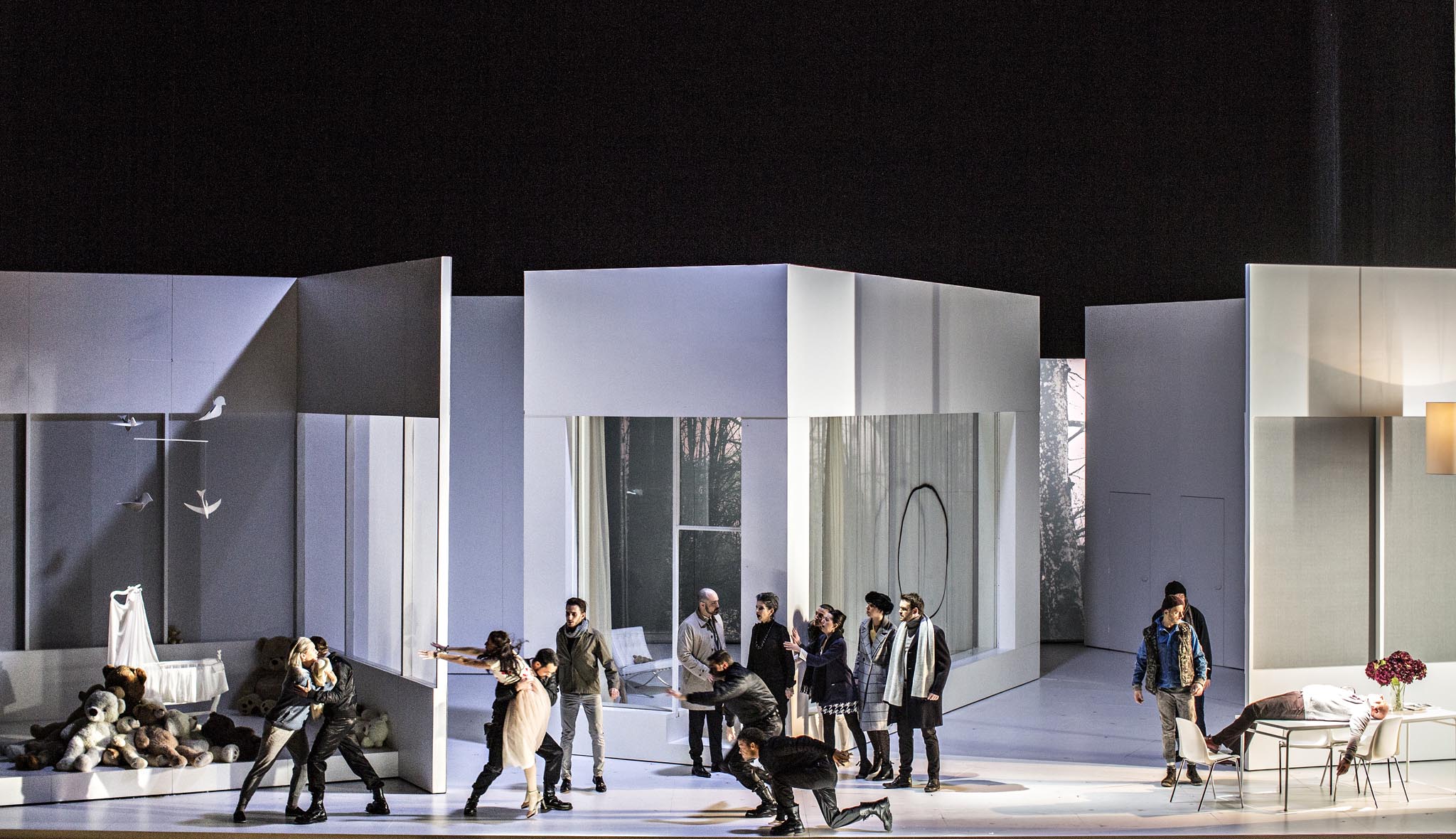
Directed by Richard Brunel, Le cercle de craie successfully hovers between powerful political art and a justice parable. (…) Richard Brunel’s sober staging and bias manage to make this 13th century Chinese tale relevant to today’s world. He expertly enhances the charges laid against injustice and corruption. With the help of conductor Lothar Koenigs, he steers clear from the potential dangers of an opera intertwining singing and speaking. Le cercle de craie is a play that is rarely performed and deserves to be seen.
Culture Box, Jean-Michel Ogler
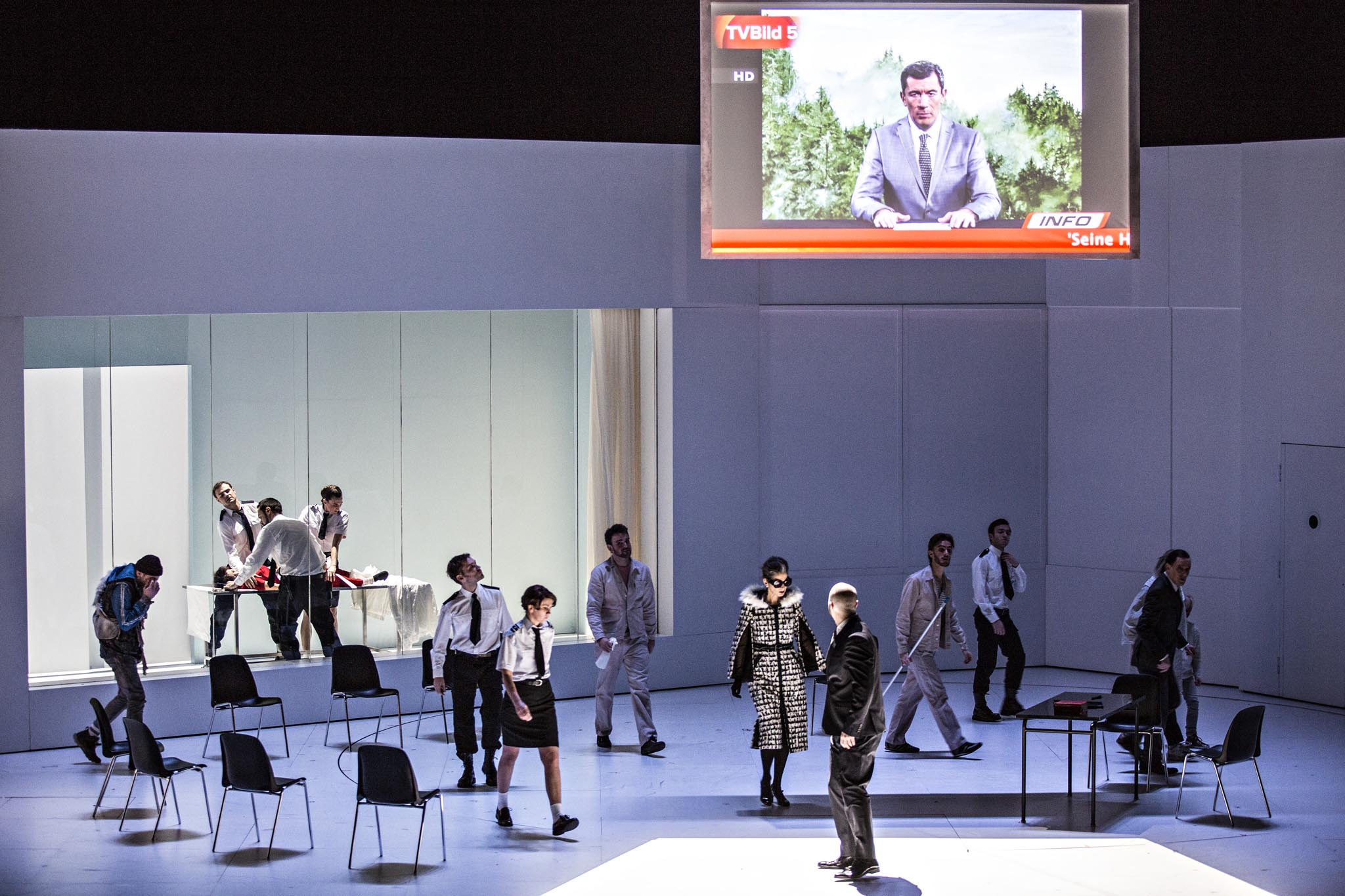
As a good director of actors, Richard Brunel gives a depth and humanity to his characters that is rarely seen at the opera.
Le Progrès, Antonio Mafra
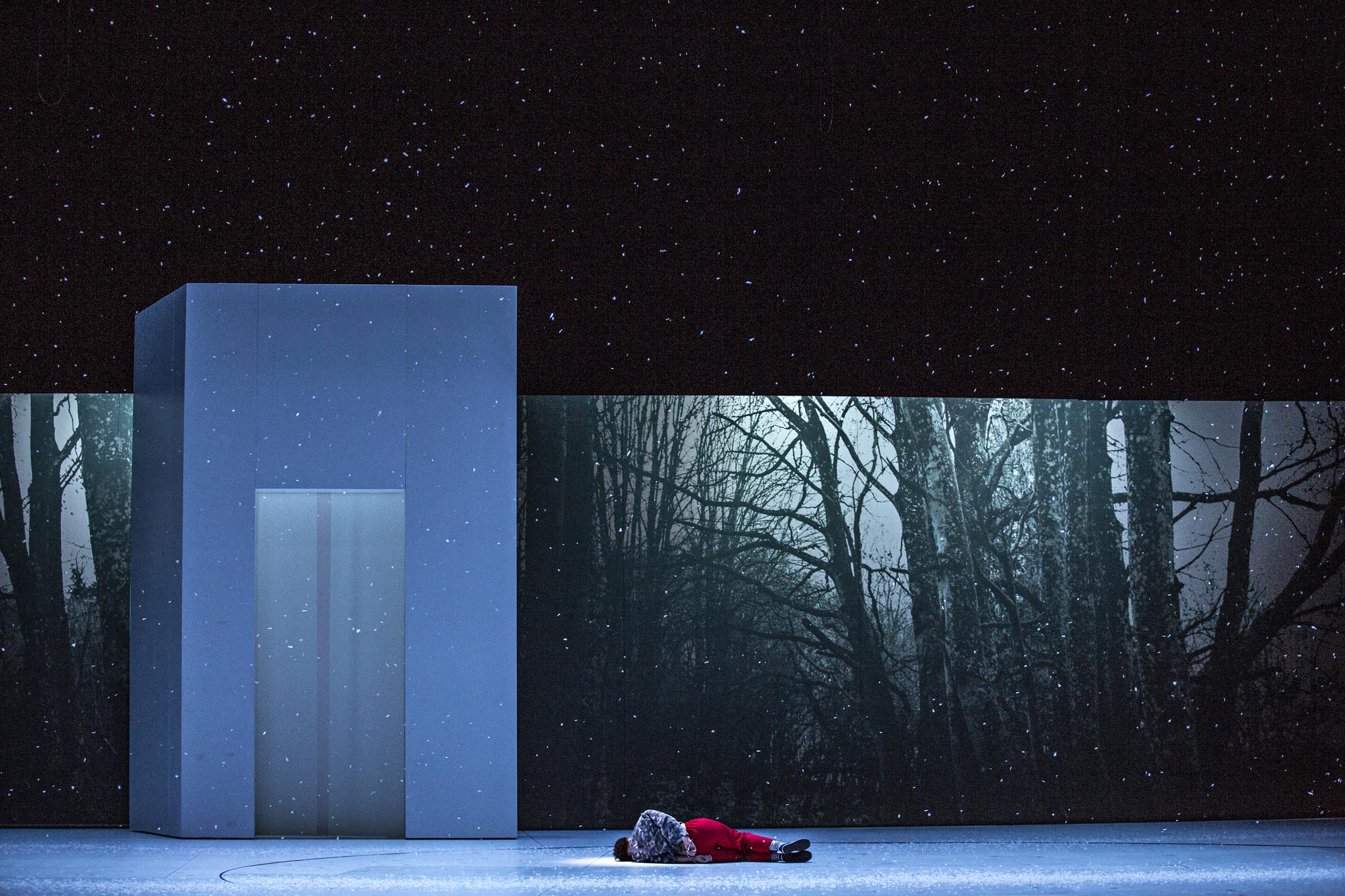
Justice (and, perhaps, justices) being a key theme in this work, stage director Richard Brunel, appears as an obvious choice for the scenography of this performance, along with the dramaturg, Catherine Ailloud-Nicolas. The mise-en-scène he imagined fits this musical masterpiece perfectly: none of the effects are overly elaborate and he simply sheds light on situations and people. Le cercle de craie by Alexander Von Zemlinsky, adapted for French audiences by the Opéra de Lyon, has not lost its relevance in the eyes of 21st century audiences, in particular thanks to the ingenuity and timelessness of Richard Brunel’s scenography.
Olyrix, Emmanuel Deroeux
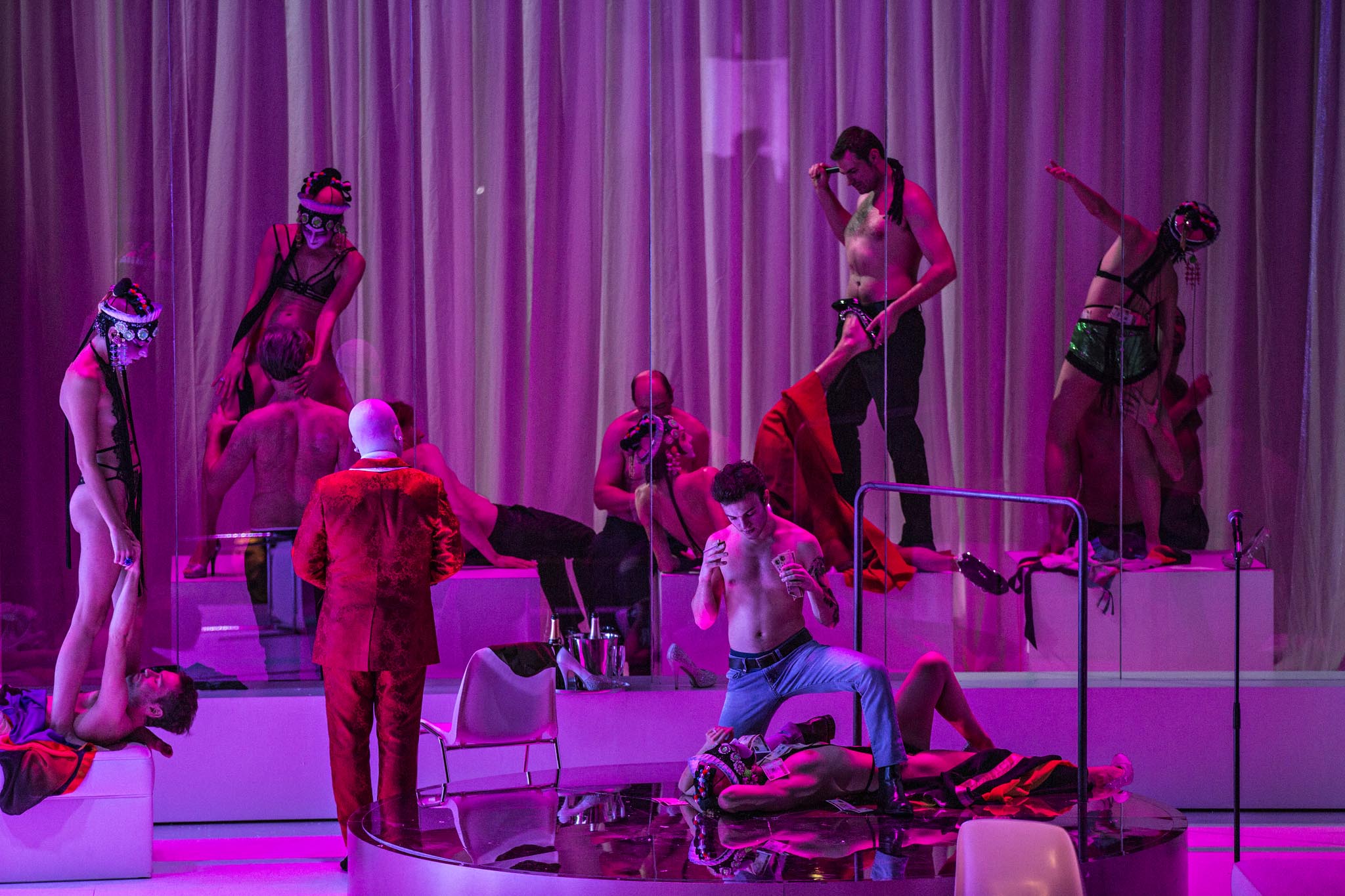
The director of the Opéra de Lyon, Serge Dorny, had an excellent idea: he called onto director Richard Brunel to add this masterpiece to the repertoire of the illustrious opera house. The baffling modernity of the libretto is beautifully rendered in this production, which could almost make us believe that it was written nowadays.
Inside Lyon, Diana
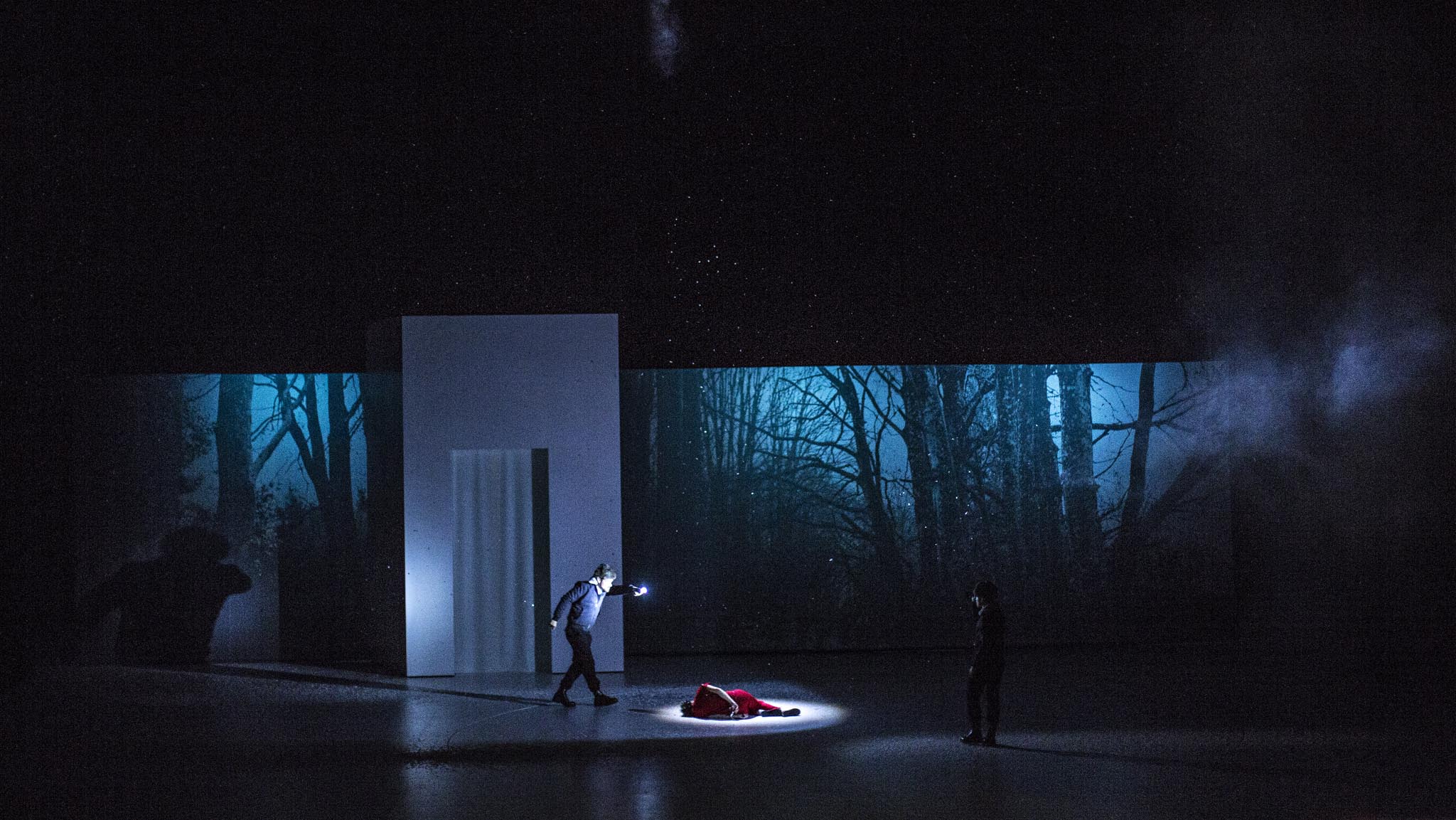
Supported by a zesty orchestra, carried by a cast whose acting skills can only baffle, this production is imbued with a moving sincerity and gives the unfortunately little-known Austrian composer the recognition he deserves on French stages. (…) The director captures the inherent pessimism of this work and mischievously highlights it, most notably in the fake happy ending when the idealised reunion of the emperor and the prisoner is marred by the onstage presence of the ragged brother.
Bachtrack, Pierre Liscia
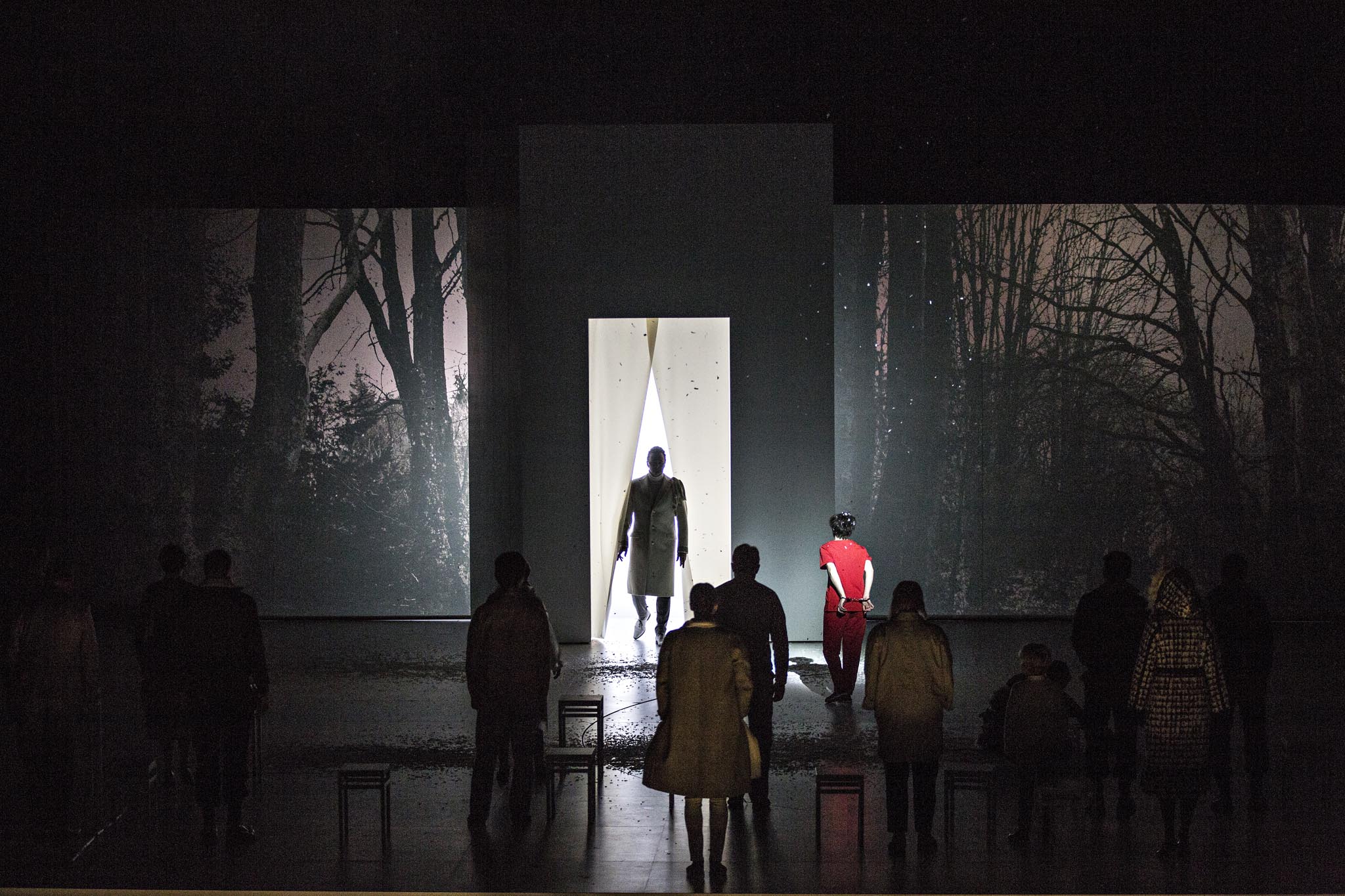
Der Kreidekreis (The Chalk Circle)
Alexander Von Zemlinsky
Opera in three acts and seven scenes
Libretto by Klabund (in German)
Music director Lothar Koenigs
Director Richard Brunel
Dramaturg Catherine Ailloud-Nicolas
Set designer Anouk Dell’Aiera
Costume designer Benjamin Moreau
Lighting designer Christian Pinaud
Assistant director Ester Pieri
Video designer Fabienne Gras
Produced by Opéra National de Lyon
Cast
Ilse Eerens,
Lauri Vasar,
Martin Winkler,
Nicola Beller Carbone,
Stephan Rügamer,
Doris Lamprecht,
Hedwig Fassbender,
Josefine Göhmann,
Matthew Buswell,
Alexandre Pradier,
Luke Sinclair
Romain Blanchard,
Céleste Bruandet,
Chloé Begou,
Fabien Grenon,
Nicole Mersey,
Loïc Risser,
Thomas Rortais,
Patrice Simonin,
Laetitia Vitteau
Orchestra, Maîtrise and Studio de l’Opéra de Lyon